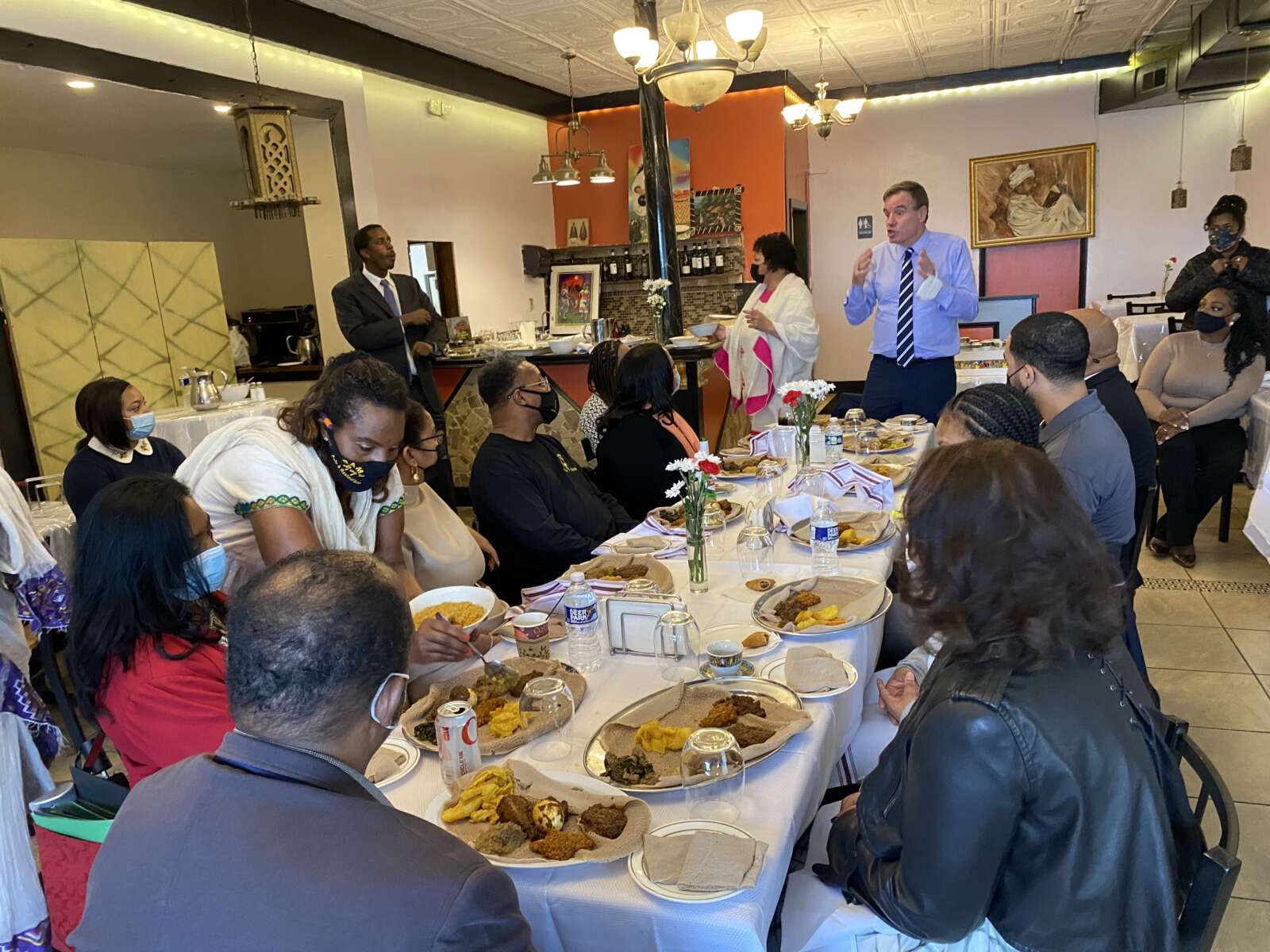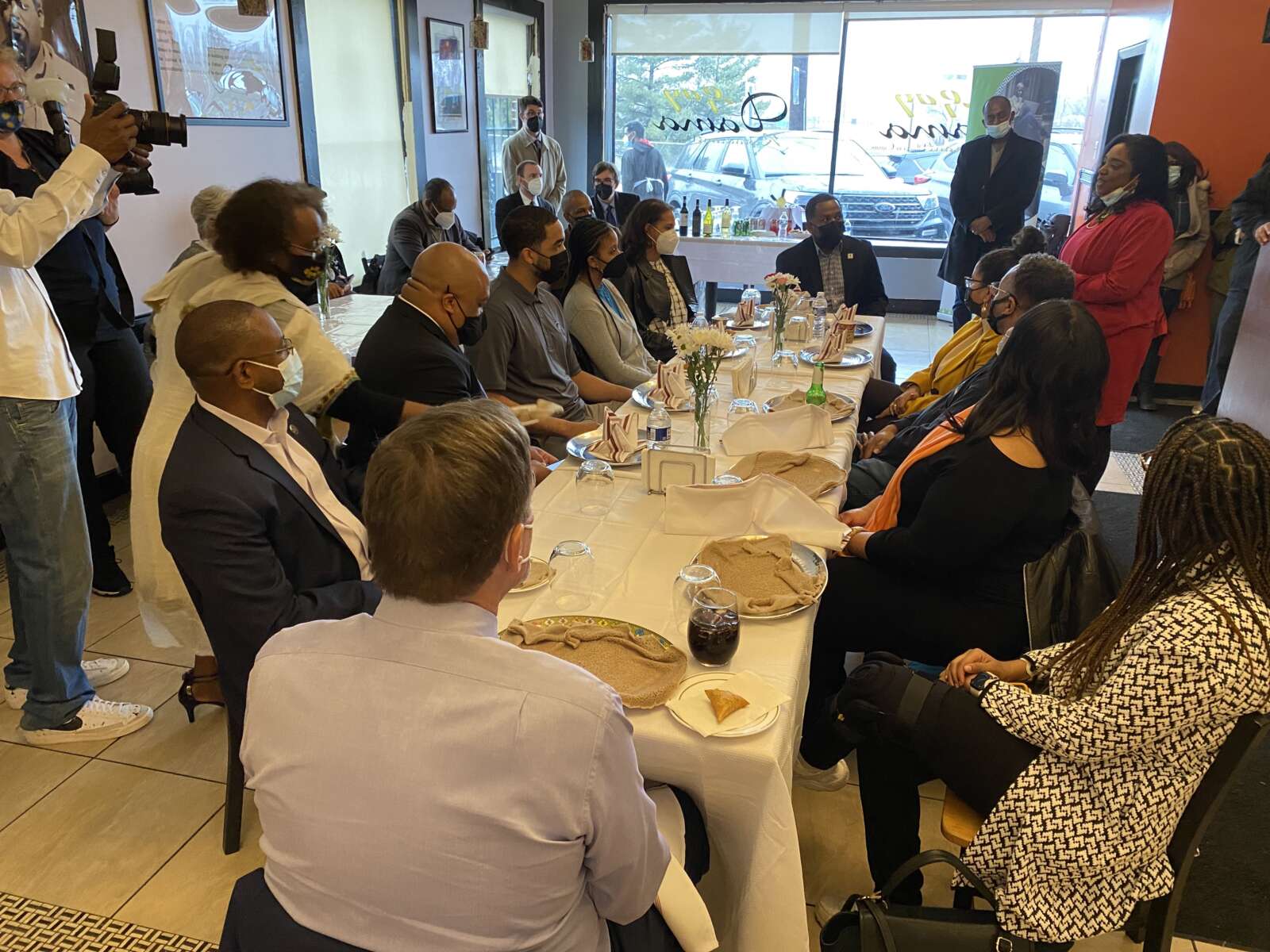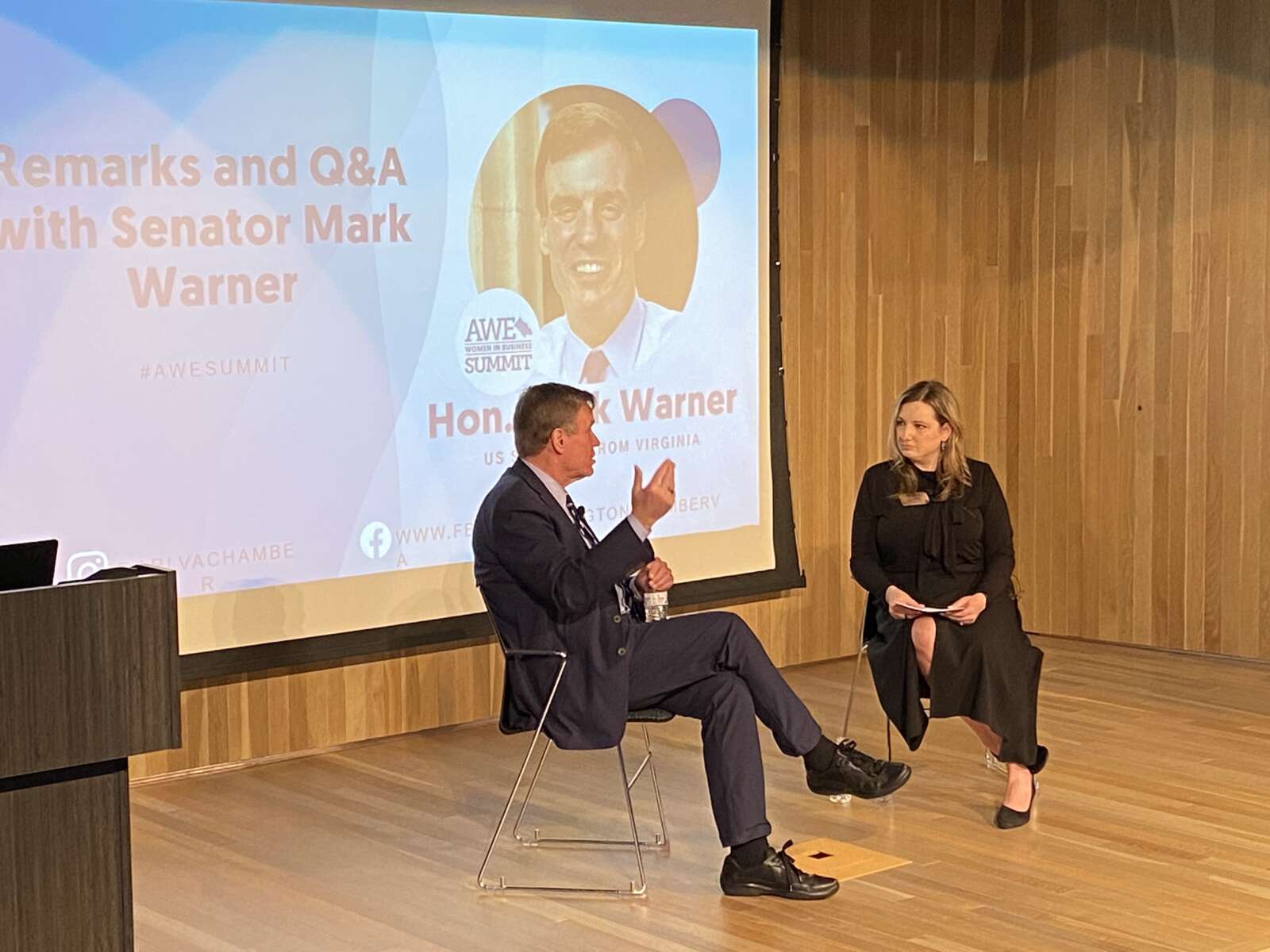Many small businesses in Arlington are hurting amid the pandemic, and that’s on top of some of the unique issues faced by Black and female business owners.
That was the topic of a pair of discussions held by Sen. Mark Warner (D-Va.) in Arlington on Friday (Feb. 4)
Over heaping plates of Doro Wat and injera, Warner met with local Black business owners at Dama Restaurant on Columbia Pike to discuss ongoing challenges they face and how the government can help them with better access to capital.
In attendance at the lunch were business owners from across Arlington and Northern Virginia, including the owners of Greens N Teff on Columbia Pike, Elliot DeBose from Sol Brothers Candles, Idido Coffee House owner Sofonias Gebretsadick, and Lauren A. Harris of Little Ambassadors’ Academy on Langston Blvd.
Arlington County Board member Christian Dorsey and Arlington Economic Development Director Telly Tucker were also there.
The 45 minute conversation ranged from Covid-related federal loan programs, the need for mentorships, how to simplify access to capital, and discrimination towards Black-owned businesses.
Prior to the discussion, Warner talked about how he failed twice as an entrepreneur prior to hitting it big in telecommunications. He said he understands what it takes to be a business owner, but only from his own perspective.
“I am very aware that if I had not been a white man with appropriate education, I might not have had three chances to be an entrepreneur,” he said to the crowd of about 20 business owners. “Or two chances to be an entrepreneur. Or maybe even a first chance.”
One of the biggest challenges that kept coming up was not the availability of federal dollars, like Paycheck Protection Program loans, but easier access to it. That means simplified applications and improved messaging and communication, to make sure minority-owned small businesses are aware the dollars are out there.
Harris, owner of the nearly decade-old Little Ambassadors’ Academy preschool, said her biggest criticism is confusion about how to access capital. With her being very focused on the day-to-day of her business, Harris said it’s difficult to navigate all the paperwork and to know where exactly she needs to turn for help.
“I think as a small business owner it is very hard sometimes to figure out where the support comes from,” she said.
Questions like what’s forgivable for loans, which funds have the longest lead time, and which business over 50 employees can apply are often on Harris’ mind, but clarity of answers can be lacking.
At one point in the conversation, a recommendation of creating a “one stop shop” type of website where all available grants, loans, and programs are listed was mentioned, in which Warner agreed needs to happen.
Beakal Melaku, co-owner of Greens N Teff, said the restaurant’s experience as a brand new business points to the need for additional help marketing and reaching customers. Money to do that would go a long way, he says, but he’s unsure where to turn for that.
The question of child care came up often at both the the business roundtable at Dama and at the AWE Women in Business Summit that was also attended by Warner on Friday.
Without proper, consistent, and affordable child care, noted several participants at the Arlington Chamber of Commerce-sponsored event, it can be hard on small business owners, particularly women-owned businesses, to stay afloat.
Warner touted what he is calling the “daughter of BBB,” the revamped version of the “Build Back Better” act that many Democrats are still hoping has a shot at becoming law.
“It would be a record investment in child care like we’ve never seen before,” said Warner to the group at Dama. “It’s about building capacity and building affordability.”
Virginia’s senior U.S. Senator also went out of his way to compliment Arlington County and its leadership. With Dorsey sitting next to him, Warner said that small business owners should be able to first turn to the county for smaller grants and localized questions. During the pandemic the county held two rounds of grant applications for small businesses.
“There is a county government here that’s really supportive,” Warner told ARLnow. “In many communities, you don’t have this embracement of diversity and immigration. You have to have every part of the community to succeed if you are going to have the county succeed.”
Not everyone was as complimentary of the county, though. Harris said there needs to be better communication and messaging about health regulations, particularly around child care. She says a big part of her job these days is communicating with parents about the newest policies, regulations, and quarantine guidelines.
“I think we need better messaging at this point in the game,” she said.
Warner said what he took away from both the roundtable on the Pike and the Women in Business Summit, held at Marymount University’s Ballston campus, is that the assistance may be there, but there needs to be a better process to get it to businesses in need.
“What I heard the most is that the assistance through [federal] programs was great, but the disaster isn’t over,” he told ARLnow. “We lost so many small businesses, particularly those businesses of color, and a lot of these programs need to continue, just a bit simplified. There remains issues in access to capital and challenges if you are a women-owned business and or business owned by a person of color.”





